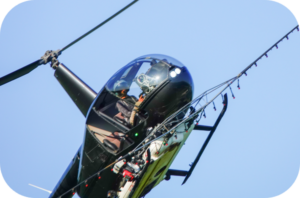Do Pilots Pay More for Life Insurance? Explore Our Complete Guide for 2025 + YouTube Video
Pilots should not have to pay more for their life insurance if they simply apply with the right insurers. Purchasing life insurance for pilots is a simple and easy process and you should not pay a penny more because of your passion for aviation. Flying airplanes may seem glamorous, but as a pilot, you understand the risks involved better than anyone.
Securing pilot life insurance is one of the most important steps you can take to protect your family’s future.
insurance is one of the most important steps you can take to protect your family’s future.
The unique nature of your occupation or hobby means you might encounter higher premiums or specialized considerations. This guide is here to simplify things and help you find the best life insurance coverage.
Whether you’re a student pilot, airline pilot, or a private pilot, you will walk away better informed and more confident in your options after reviewing this article.
Table of Contents
Frequently Asked Questions – Life Insurance for Pilots
Q: Does being a pilot make it harder to get life insurance?
A: Not at all! While flying does affect your risk profile, many insurers work with pilots every day. It’s all about finding the right fit.
Q: Will my premiums be higher because I fly?
A: Your premiums should not be higher if you are using one of our aviation-friendly insurers. It all depends on your experience and being certification training. If you are involved with (stunt flying, aerobatics, etc.), you may see a premium increase.
Q: What’s an aviation exclusion, and should I worry about it?
A: An aviation exclusion means your policy won’t pay out if you die in a flying accident. This is an option that can only be requested by yourself. We do not recommend any type of exclusion. Most good insurers will not even offer exclusions on their policies.
Q: Do commercial and private pilots get treated differently?
A: Sometimes, depending on the carrier. Commercial pilots may have fewer restrictions, while private pilots might be asked for more details about their flying habits and certifications.
Q: Does the number of flight hours I have affect my rates?
A: Yes, more flight hours, especially recent ones, can demonstrate experience and reduce perceived risk.
Q: What type of life insurance is best for pilots?
A: Term life insurance is popular for its affordability, but some pilots prefer permanent coverage for long-term peace of mind. We’ll help you weigh the pros and cons.
Q: Do I need to take a medical exam to apply?
A: Many policies require a quick exam, but some no-exam options are available — especially if you’re in good health and fly under certain conditions.
Q: What if I do aerobatics or fly experimental aircraft?
A: These can increase your risk rating. That doesn’t mean you can’t get insured — but it’s important to disclose all activities to avoid claim issues.
Q: Can I get life insurance if I just got my pilot’s license?
A: Yes, but newer pilots might face higher rates until they log more flight hours. Insurers often like to see 100+ hours of recent flying.
Q: How long does the application process take?
A: Typically 2–4 weeks, depending on the policy and whether a medical exam is needed. We’ll guide you through every step.
Q: Can I still get pilot life insurance coverage if I’ve been declined before?
A: This would totally depend on why you were previously declined. Different insurers have different guidelines. If you’ve been declined once, we’ll help you find a company that better understands pilots.
Still Have Questions?
We specialize in helping pilots get the right life insurance for their needs and the lowest premiums that will easily fit their budget. Reach out today for a quick, no obligation consultation and let’s find the best policy for your aviation lifestyle.
How to Apply for Life Insurance with a Hazardous Occupation, Sport or Hobby: YouTube Video
Understanding the Risk Factors That Affect Pilot Life Insurance
To better understand your pilot’s life insurance, it’s important to know what underwriters evaluate when generating the premium for your policy. Here are some key risk factors that come into play:
Types of Flying
The purpose of your flights matters for underwriting. For instance:
Commercial Pilots:
Commercial pilots, also known as airline pilots who fly certified aircraft, typically face lower risks. Purchasing life insurance for commercial pilots will be based on the concept that commercial pilots usually have more experience and training. Many commercial pilots today have originally come from serving in the U.S. Air Force and then transitioning to civilian aviation.
Their intense Air Force training gives them the experience advantage when applying for commercial pilot life insurance. Airline pilots normally also go through training classes provided by their employers to keep them up to date with new skills.
Private Pilots:
Private pilots that operate smaller or experimental planes tend to encounter higher risk classifications. When an individual applies for life insurance for private pilots, many times the applicant may not have the experience or training that a commercial pilot has.
They also typically fly smaller, single-engine aircraft that the statistics show have a higher reputation for crashing. Private pilot life insurance can easily be approved and issued at preferred rates will a history of good health.
Student Pilots:
Student pilots seeking life insurance normally believe that life insurance for student pilots will be impossible to apply for or will cost a fortune to buy. Nothing could be further from the truth. The fact is they have little to no experience at all and you would think they would be viewed as a terrible risk.
In reality, they fly with a licensed, highly experienced flight instructor supervising their every move. If a student pilot applies for coverage, he would normally be given a standard rate classification and be given a $2.50 flat extra fee.
Once they have built up experience they can re-apply for preferred rates and lose the flat extra fee altogether. Purchasing student pilot life insurance is never a problem as long as you are in good health.
Recreational Aviators:
Recreational pilots that participate in aerobatic or adventure flying can see much higher premiums because of the greater hazards they encounter.
Helicopter Pilots:
Purchasing life insurance for helicopter pilots is just about a mirror image of purchasing coverage for airplane pilots. Again, a helicopter pilot’s health is going to be the most important underwriting factor.
Flight Hours and Experience
Most insurers will reward seasoned pilots with lower rates. For example:
1. Pilots with over 1,000 hours of flying time or an Instrument Flight Rating (IFR) are often classified favorably.
2. Less experienced flyers, like student pilots, may see higher premiums or flat extra fees until they build hours.
Aircraft Type:
The type and safety record of the aircraft you fly will impact your policy. Standard, certified planes are viewed as safer, while experimental or smaller aircraft might result in higher costs.
Frequency and Location of Flights:
Underwriters want to know how often you fly annually, along with your destinations. Pilots flying fewer than 250 hours per year domestically typically pay lower premiums than those flying internationally or to remote areas.
Aviation Medicine and Your Health:
Ironically, being a pilot can sometimes work in your favor. Maintaining a pilot’s license means passing regular medical exams and staying in good physical condition, which are factors that appeal to insurers.
Best Types of Life Insurance for Pilots
There are two main types of life insurance policies you’ll want to consider as a pilot:
Term Life Insurance for Pilots:
Term life insurance covers you for a specific time frame (e.g., 10, 20, or 30 years). It’s often the most affordable option and suitable for most pilots. Companies like Protective Life and Prudential offer competitive rates tailored to pilots. You will find that term life insurance is by far the most cost effective policy to choose from
The Advantages
1. Low monthly premiums
2. Simple coverage with no cash value
3. Customizable term lengths to protect key life milestones (e.g., paying off loans or a dependent’s education)
Universal Life Insurance for Pilots:
For pilots looking for lifetime coverage or a policy with cash value, universal life insurance is an option. While more expensive upfront, this type of policy can build savings over time.
The Advantages
1. Lifetime coverage.
2. Cash value component that grows over time.
3. It’s a good tool for estate planning and wealth transfer.
No-Medical-Exam Life Insurance for Pilots:
The Advantages
1. No medical exam is required
2. Very fast application approval times
3. No medical records are required
What Is the Best Life Insurance for Pilots?
The ideal life insurance for pilots will vary based on the individual’s unique circumstances and needs. In my 29 years as an insurance broker, my recommendation will always be term without question. Universal life will be at least 3x the cost and whole life will be out of the ballpark.
Many insurers have terminated their lines of whole life protection due to the very high cost. Banner Life now offers term limits of up to 35 and 40 years. If you want to be covered for the rest of your life.
You can choose term for the number of years when you will need the highest death benefit and incorporate universal life with a smaller death benefit which will follow you for the rest of your life. This will enable you to have the best life insurance portfolio possible.
Some of the Best Life Insurance Companies for Pilots to Apply With:
Protective Life:
We would confidently rank Protective Life as our number one choice due to their low rates and not applying any flat extra fees to a policy.
AIG:
AIG offers competitive rates and specific policies tailored for pilots, including coverage for aviation accidents.
Mutual of Omaha:
Mutual of Omaha is well known for their lenient underwriting guidelines and affordable rates.
Northwestern Mutual:
Northwestern Mutual is highly rated for financial strength and stability, with a variety of policy options.
Transamerica:
Transamerica offers specialized coverage for pilots, with flexible payment plans.
MassMutual:
MassMutual offers comprehensive coverage and customizable policies for pilots.
New York Life:
New York Life is highly rated for financial stability and offers competitive rates for pilots.
Finding Pilot-Friendly Companies
Not all insurers will treat pilots equally. To secure the best coverage, it’s critical to work with companies that specialize in insuring aviation professionals.
Here’s what to look for in an aviation-friendly policy:
1. Policies without aviation exclusion riders (which exclude coverage for aviation-related deaths).
2. Flexible options with no or minimal flat extra fees.
3. Positive reviews for working with aviation professionals.
Tip: Always work with an independent agent who can compare multiple insurers to find the right fit.
The Application Process
Getting life insurance as a pilot involves some additional steps in the application process compared to other professions. Here’s what to expect:
Aviation Questionnaire:
Most insurers will require you to complete an aviation questionnaire. This typically asks about:
1. Number of total flight hours and annual flight hours
2. Type of aircraft flown
3. Purpose of flying (commercial, private, recreational, etc.)
4. Locations and frequency of flights
5. Licenses and certifications (e.g., IFR, private pilot license)
Your Health History:
Your overall health remains a significant factor in determining premium rates. Conditions like high blood pressure or obesity could increase costs, regardless of your flying history.
Underwriting Decisions:
Based on your responses, insurers will determine your risk class. Experienced pilots with high total hours and strong medical records are more likely to qualify for preferred rates.
Cost Considerations for Pilot Life Insurance
The cost of life insurance for pilots varies depending on individual risk factors. We recommend using our instant rate comparison tool where you can compare the rates displayed side-by-side for over 40 top rated insurers. Here are some general insights:
Term Life Premiums:
For an experienced private pilot with over 100 flying hours, premiums may range from $30 to $55 per month for a $500,000 policy. Rates typically increase with age, so applying sooner rather than later is ideal.
Flat Extra Fees:
Some companies may charge “flat extra fees” ranging from $2 to $7.50 per $1,000 of coverage. For instance, a $500,000 policy with a $5 flat fee could cost an additional $2,500 per year. However, working with a pilot-friendly insurer like Protective Life can help you avoid such fees.
Aviation Exclusion Riders:
Opting for an exclusion rider can lower costs, but it removes coverage for aviation-related deaths. Many insurers offer affordable alternatives without requiring this option.
Sample 20-Year Term Life Insurance Premiums for Pilots ($500,000 Death Benefit)
| Age | Private Pilot: Female ($/months) | Private Pilot: Male ($/months) | Commercial Pilot: Female ($/months) | Commercial Pilot: Male ($/months) |
|---|---|---|---|---|
| 30 | $28.76 | $36.05 | $23.37 | $28.97 |
| 35 | $38.50 | $46.26 | $29.34 | $35.57 |
| 40 | $46.23 | $56.47 | $35.31 | $43.17 |
| 45 | $72.17 | $93.81 | $55.34 | $69.54 |
| 50 | $98.11 | $131.15 | $73.37 | $96.91 |
A few quick notes to consider:
-
Rates vary by insurance carrier and underwriting guidelines.
-
Commercial pilots may receive better rates than private pilots, depending on flight history and type of flying.
-
These estimates assume no major medical conditions and typical aviation experience (e.g., 100–300 hours/year).
-
Adding an aviation exclusion (waiving coverage for flight-related deaths) can lower rates slightly, but many pilots opt to keep full aviation coverage.
Expert Advice for Pilots
“Many pilots often assume they will pay higher premiums due to their involvement in aviation, but that’s not always the case. The key is applying with the right carrier. I have been an independent agent for 29 years and the founder of my agency with many years of experience specializing in high-risk life insurance.
Always disclose your flying frequency, details and health history honestly to avoid claims issues later.
Life Insurance for Helicopter Pilots
To get the best life insurance rates for helicopter pilots, you need two things. First, you need a private pilot certificate (PPL). Second, you need a commercial pilot certificate (CPL). This is especially important for commercial flying.
(PPL). Second, you need a commercial pilot certificate (CPL). This is especially important for commercial flying.
An FAA medical certificate to show you are in good health and a CFI would be a great asset. Having ample flight experience is also a factor.
Applying for life insurance for helicopter pilots is similar to applying for life insurance for airplane pilots. The information the carriers will be asking for will be:
Like all types of aircraft, whether private or commercial, more experience and training can help you get lower rates. There is a risk for helicopter pilots concerning crashes but the accident statistics show they are relatively safe.
Applying for life insurance for helicopter pilots and getting approved with preferred rates is a snap. Underwriting is much more relaxed than it was before. The best tip I can give you is to apply with an aviation-friendly insurer such as the ones our agency is contracted with.
Aviation Questionnaire
This questionnaire is designed to gather data on your flying activities to evaluate the potential risks for insurance coverage. All life insurance companies need to know these details to calculate your policy’s premium before your application can be approved.
coverage. All life insurance companies need to know these details to calculate your policy’s premium before your application can be approved.
If you would like us to provide you with an accurate rate quote, please complete this Aviation-Questionnaire. Rest assured that your information is secure and confidential.
You can either email or fax it back to us and we will be able to provide you with an accurate projection of what your rates will be.
Have Questions? We’re Here 7 Days a Week to Help You
Life insurance is about giving yourself peace of mind and ensuring your loved ones are protected. While being a pilot adds unique considerations, it’s entirely possible to find affordable, comprehensive policies with the right guidance.
adds unique considerations, it’s entirely possible to find affordable, comprehensive policies with the right guidance.
To get started, call 708-334-6226 today for a free quote. With nearly three decades of experience, we specialize in helping pilots find the best-fit policies tailored to their needs. Don’t leave your family’s financial security to chance, apply over the phone and secure their future.
All the best,
Jack Venturi


